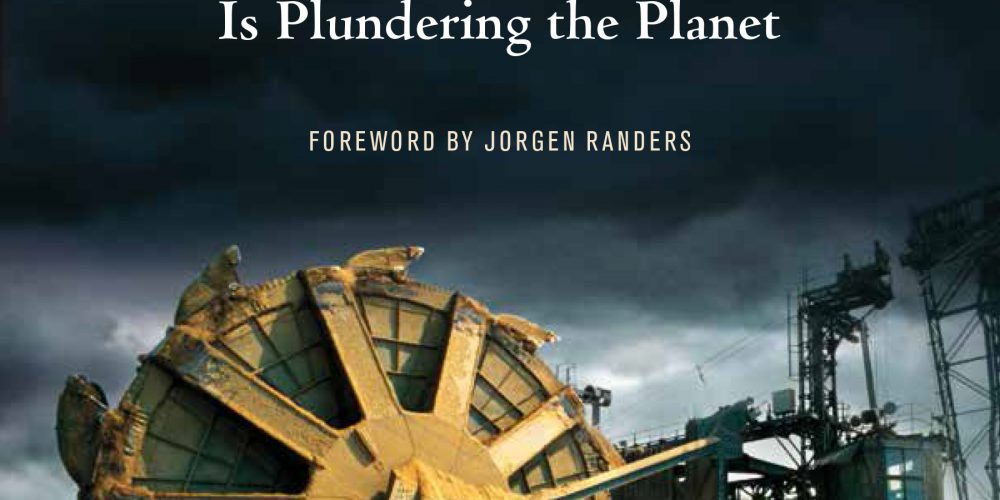A few centuries ago humans ignited a fossil fire, liberating stocks of carbon long-buried in the Earth’s crust. Since then this fire has powered civilization, enabling the extraction of all other minerals. But it is now flickering, its fuel almost exhausted, even as the waste it produced threatens the biosphere.
In Extracted, Ugo Bardi surveys the history and consequences of this conflagration, presenting a global view of the past, present and future of minerals. It is a story of limits. Today’s rising oil production and declining prices are, Bardi argues, only a brief interruption in a long-term trend of increasingly scarce and expensive resources: not just oil but almost every mineral, as our population and economy bump against the limits of a finite world.
This argument, of course, is not really novel – indeed, it was familiar long before the Limits to Growth study of 1972. Like that study, this book is also a report of the Club of Rome – the global think-tank dedicated to challenges facing the future of humanity and the planet. Extracted is intended to update its essential message: that decisions must be informed by an understanding of global trends in resource depletion, pollution, population and technological change.
The book takes a comprehensive view, surveying diverse resources and explaining how, when and why we can expect them to run out. But Bardi also goes to some pains to explain that depletion is more complicated than simply “running out” of something. It affects us long before minerals become truly scarce. This is because the richest, most accessible ores are always the first to be mined. As these get used up, extraction becomes more difficult, requiring more energy and producing greater impacts. (The tar sands epitomize this pattern, but it has been observed for countless minerals as well.)
The real limit on a resource is therefore not geological, but economic: at some point the cost of the energy required for its extraction exceeds its benefit. The result is “peak everything” and rising energy costs will eventually make all resources we dig out of the ground too expensive. It’s not just oil and gas: the notion of a long-term supply of cheap and abundant coal is also a myth.
Rising energy costs will eventually make all resources we dig out of the ground too expensive.
Short essays by several authors profile a variety of resources – soil, uranium, copper, lithium, nickel, zinc and other minerals – sketching their economic roles and the constraints on their production. These brief “glimpses” elaborate on the volume’s overall message of inevitable depletion.
Bardi also examines and disposes of several common beliefs. One is the hope that fossil fuel depletion will “solve” climate change by eliminating the source of the problem. In fact, as oil and gas become harder to access, their production requires more energy, which means more greenhouse gases. He also dismisses hopes invested in other energy sources. Fracking is no panacea as this source of “clean” natural gas requires enormous amounts of energy and other resources. So does nuclear power: Besides its other drawbacks, uranium supplies are subject to the same limits as other minerals. The belief that there is a substitute available for any resource is also discarded – producing any substitute always requires energy and some essential resources, such as phosphorus for agriculture, can never be replaced.
Beyond these messages, the book presents a sweeping view of the history of minerals, including their use as currency and weapons. This discussion is interesting and ambitious, but less successful. Bardi traces seemingly every historical event back to minerals – presenting, in effect, a history of the world as a miner might have written it. The result is often simplistic: access to minerals and energy “explain” phenomena as disparate as Imperial Rome’s domination of the Mediterranean, European victories over the Turkish Empire, the rise of the British Empire, the collapse of the Soviet Union and the 2008 recession. The First World War was a battle between “German coal” and “British coal,” which won with help from “American coal.” Similarly, the Second World War was a war for oil and other resources. Such views violate more complex and realistic historical perspectives – and even clash with the author’s more subtle explanation of mineral depletion and other phenomena.
So what is to be done? While prediction and not policy is Bardi’s focus, he presents a few ideas. He notes that alternative sources of materials, such as landfill mining and recycling (which is really “downcycling,” as recycled materials are usually of lower quality) are useful, but limited. Instead, he calls – as have many others – for industrial transformation: more durable products that generate less waste and are designed to enable recovery of materials after use. While depletion may be inevitable, at least it can be shifted further into the future, allowing more time for our transition to scarcity.
It’s sensible advice, even as oil prices continue sliding into the basement.
Extracted: How the Quest for Mineral Wealth is Plundering the Planet, Ugo Bardi, A Report to the Club of Rome, White River Junction, Vermont: Chelsea Green Publishing, 2014, 368 pages.
Reviewer Information
Stephen Bocking, a regular contributor to Alternatives, is professor at and chair of the Environmental and Resource Science/Studies Program at Trent University and author of A\J’s EcoLogic blog.
You can follow Stephen on Twitter at @BockingStephen or read his blog: Environment, History and Science.













